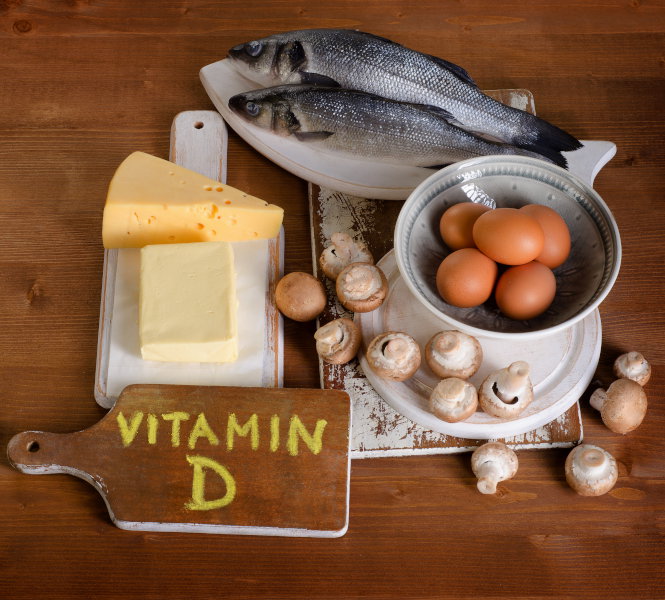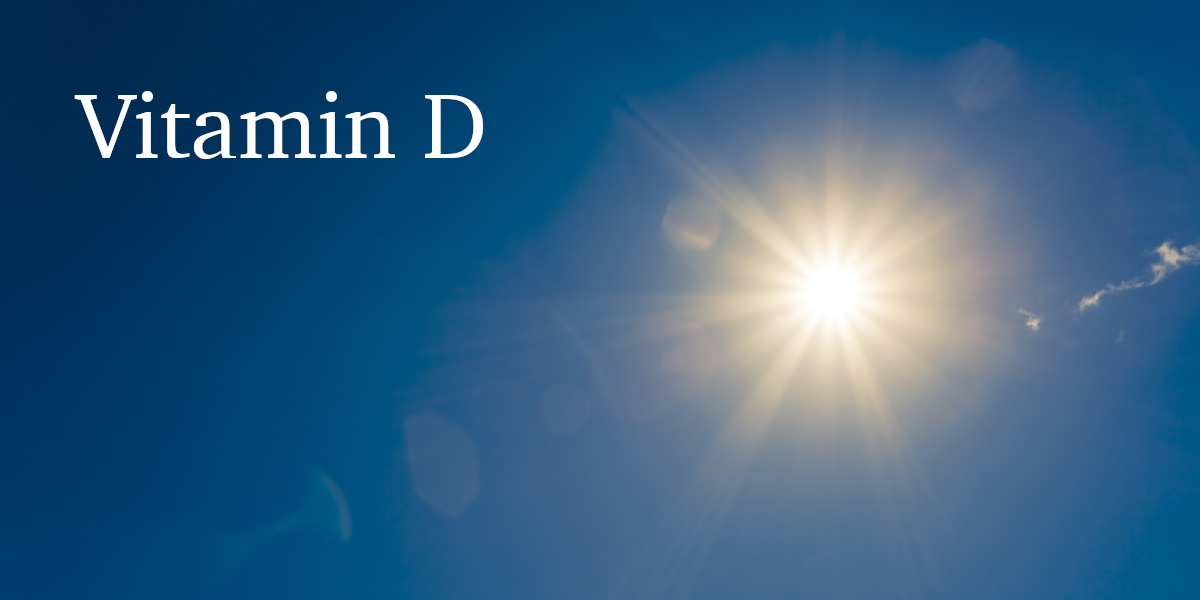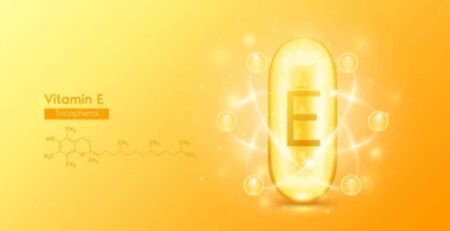Why is Vitamin D Important for Health?
Why we add vitamin D to our vitamin packets
Vitamin D is a fat-soluble vitamin that is vital to your health. It aids in restful sleep, strengthens bones, promotes healthy immune function, and may even impact your mental health. Low vitamin D levels are often associated with feelings of depression, lethargy, and muscle weakness. Extended vitamin D deficiency can also result in weak bones — rickets in children, and osteoporosis in adults. Our vitamin packets containing vitamin d powder are a perfect choice for replacement of vitamin d deficiency and maintenance of higher vitamin d levels.
Why is vitamin D important?
Vitamin D, also known as “the sunshine vitamin,” is essential for maintaining a healthy balance of calcium and phosphate in the body. Bones, teeth, and muscles can’t function properly without these nutrients. Bone deformities such as rickets in children, bone pain in adults due to osteomalacia, and osteoporosis in older adults can result from insufficient vitamin D intake.
According to research, around one billion individuals worldwide experience vitamin D deficiency, and approximately 50% of the world’s population has vitamin D insufficiency. Doctors consider this condition a major public health concern. About 35% of the American population has vitamin D deficiency.
Vitamin D and calcium
Vitamin D plays an important role in calcium absorption. Both contribute to healthy bone structure and density, so calcium supplements often contain vitamin D as well.
Because these two nutrients are so closely linked in bone health, insufficient vitamin D levels can have similar effects as low calcium levels. Loss of bone density from vitamin D deficiency creates an increased risk of bone fractures — especially in older patients.
Symptoms of vitamin D deficiency
Rickets is a children’s disease caused by a severe shortage of vitamin D. Some of the most common symptoms of rickets include:
- Incorrect growth patterns as a result of bones that are bowed or bent.
- Muscle weakness.
- Bone pain.
- Deformities in joints.
However, rickets is very rare. The symptoms of a mild vitamin deficit in children may be muscle weakness, soreness, and/or pain. Breastfed babies do not get vitamin D from their mothers and therefore need adequate sun exposure to prevent vitamin D deficiency.
While vitamin D deficiency in adults can also result in bone aches and weakness, it can also manifest as:
- Fatigue
- Muscle weakness, muscle aches, and muscles cramps
- Alterations in mood, such as depression

How to get enough vitamin D
Vitamin D is difficult to get because, depending on your location, the sun isn’t always reliable, and there aren’t many dietary sources that contain enough of it. Vitamin D-fortified foods aren’t always enough to meet your vitamin D requirements.
Sources of vitamin D include:
- fatty fish – such as salmon, sardines, herring, and mackerel
- red meat
- liver and liver oil
- egg yolks
- fortified foods – such as some butters and breakfast cereals
- dairy products fortified with vitamin D
Keep in mind that sun exposure may put you in a higher risk of skin cancer, so make sure to use sunscreen.
Who benefits from vitamin D3 supplements?
Because most food sources of vitamin D are animal-based, vegans and vegetarians may struggle to get enough vitamin D from food.
There are also some medical conditions that inhibit the body’s ability to absorb enough vitamin D. Digestive and intestinal conditions such as celiac and Crohn’s diseases decrease the amount of vitamin D absorbed by the intestines.
Obesity has also been linked to decreased blood levels of vitamin D. Because vitamin D is stored in fat cells, higher body fat leads to less vitamin D circulating in the blood.
People with darker skin also benefit from vitamin D supplementation. Melanin protects the skin from UV rays, which also decreases natural vitamin D production when exposed to sunlight.
If you’re worried about your vitamin D levels, your doctor can order a 25-hydroxyvitamin D blood test to check your blood levels of the active form of vitamin D.
Dietary supplements and multivitamins for vitamin D
The recommended daily amount (RDA) of vitamin D is 600 international units (IU) for people ages 1 to 70. The recommended amount is higher for children, people over 70, and those who are breastfeeding. With 30 minutes of direct midday sun exposure (between 10am and 3pm), your body should be able to naturally produce 10,000 IU (250 mcg) of vitamin D. But, obviously, that doesn’t always work out.
Vitamin D supplements can provide the benefits your body needs if you aren’t getting enough sunshine.
There are multiple forms of vitamin D:
- Ergocalciferol — vitamin D2 — is found in some plants.
- Cholecalciferol — vitamin D3 — is made by the skin when it is exposed to sunlight. Mammals have a lot of it.
While both kinds of vitamin D are useful for a healthy body, doctors often suggest taking vitamin D3 supplements. Vitamin D3 is more effective than vitamin D2 at increasing serum vitamin D levels and more stable than vitamin D2 in the body.

Taking vitamin D supplements
The FDA views multivitamins and dietary supplements as food, not medicine. However, unlike pharmaceuticals, dietary supplements are prohibited from making any guarantees about their effectiveness.
Before beginning a supplement regimen, seek medical advice from your healthcare provider. Your exact dosage will depend on your health and medical history, but, in most cases, a daily dose of 10 milligrams of vitamin D3 is all that’s needed.
Because vitamin D is fat-soluble (stored in your fat cells) there is a chance of vitamin D toxicity if you take too much.
Symptoms of vitamin D toxicity include nausea, vomiting, a metallic taste in the mouth, headaches, and body aches — although they are rare. Because vitamin D helps your body absorb calcium for healthy bone density, too much vitamin D can also lead to calcium problems. Too much vitamin D over a long period increases your risk of hypercalcemia — too much calcium absorption.
The health benefits of vitamin D cannot be understated. Vitamin D supports your muscle function, bone health, immune function, your body’s ability to absorb and retain calcium, and so much more. Vitamin D deficiency also increases the risk factors for heart disease and insufficient bone density.
Why trust VitaminMD with your vitamin formulations?
The VitaminMD Story
Dr. David Nazarian developed VitaminMD in response to the COVID-19 pandemic. He saw his patients’ diets lacked an all-inclusive vitamin — an essential immunity boost that optimizes overall health. He also noticed that most of his patients were vitamin D-deficient and unaware of its many problems.
Many patients asked Dr. Nazarian what to take to boost their immune systems, improve their energy and keep their bodies strong against infections, but there wasn’t one product with all the necessary ingredients. VitaminMD vitamin packets contain 3,000iu of vitamin d3 or cholecalciferol in order to boost and maintain higher levels of vitamin d. Our vitamin d packets are organic and derived from mushrooms and since they are in a liquid format, they are easy to digest and a great replacement for vitamin D deficiency.
About VitaminMD
There is a wide variety of multivitamins available to the public. Unfortunately, no single multivitamin has been specifically formulated to meet today’s needs. VitaminMD’s formulas and daily vitamin packets contain many ingredients that patients can’t find in a single product. Our vitamin supplements are easy to drink, great tasting, and absorb better than tablets. An M.D. formulated VitaminMD on the pandemic front lines to meet today’s health needs.
Who likes taking multiple pills and tablets each day? No one. That’s why VitaminMD’s elixirs and vitamin packets deliver a robust and comprehensive dose of all the necessary vitamins for boosting the immune system and supporting overall health. Other vitamins often lack main ingredients — meaning patients must take multiple daily vitamins to meet all their needs.
Many people are deficient in vitamin D, and popular immunity drinks on the market today lack enough vitamin D. VitaminMD has the necessary dosage of vitamin D and other great ingredients that boost immunity and optimize overall health. Simply add our vitamin power to a glass of water and drink daily!
References
Avenell A, Mak JC, O’Connell D. Vitamin D and vitamin D analogues for preventing fractures in post‐menopausal women and older men. Cochrane Database of Systematic Reviews. 2014(4).
Gold J, et al. The role of vitamin D in cognitive disorders in older adults. US Neurology. 2018; doi:10.17925/USN.2018.14.1.41.
Zittermann, A., Frisch, S., Berthold, H. K., Gotting, C., Kuhn, J., Kleesiek, K., Stehle, P., Koertke, H., and Koerfer, R. Vitamin D supplementation enhances the beneficial effects of weight loss on cardiovascular disease risk markers. Am J Clin Nutr 2009;89(5):1321-1327.












Comment (1)
[…] best electrolyte supplement with the necessary dosage of minerals and vitamins such as vitamin C, vitamin D, and B-complex […]